The BEST episodes of Frontline season 2001
Every episode of Frontline season 2001, ranked from best to worst by thousands of votes from fans of the show. The best episodes of Frontline season 2001!
Explores a wide scope of the complex human experience.
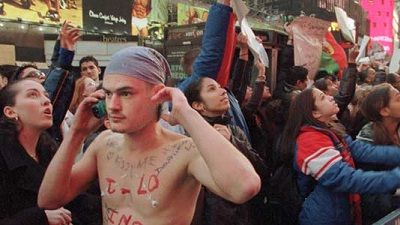
#1 - The Merchants of Cool
Season 2001 - Episode 5 - Aired 2/27/2001
FRONTLINE journeys into the world of the marketers of popular culture to teenagers. They spend their days sifting through reams of market research data. They conduct endless surveys and focus groups. They comb the streets, the schools, and the malls, hot on the trail of the "next big thing" that will snare the attention of their prey - a market segment worth an estimated $300 billion a year. They are the merchants of cool: the creators and sellers of popular culture, who have made teens the hottest consumer demographic in America. But are these marketers merely reflecting a growing coarseness in teen culture, or have they helped create it? Are they simply reflecting teen desires or have they begun to manufacture those desires in a bid to secure this lucrative market? And have they gone too far in their attempts to reach the hearts - and wallets - of America's youth?
Watch Now:Amazon#2 - LAPD Blues
Season 2001 - Episode 9 - Aired 5/15/2001
All is not well inside the Los Angeles Police Department. The worst corruption scandal in the force's history has devastated a police department once epitomized by Dragnet's Joe Friday and the clean-cut crew of Adam-12. FRONTLINE correspondent and New Yorker writer Peter J. Boyer unravels the mysteries that swirl around recent reports of police brutality, departmental racism, and corrupt cops who take part in everything from dope deals to bank robberies.
#3 - Organ Farm (2)
Season 2001 - Episode 7 - Aired 4/3/2001
#4 - The Monster that Ate Hollywood
Season 2001 - Episode 18 - Aired 11/22/2001
The box office is booming. New international markets are opening weekly. Amazing advances in technology hold the promise of new delivery systems. Yet there's trouble bubbling just below the surface in Hollywood today as movie industry creative types struggle to adapt to new business realities. On the eve of one of the biggest weekends for new movie releases, FRONTLINE explores the changing Hollywood, revealing how once-fiercely independent studio bosses must now answer to the megacorporations that have swallowed the industry whole.
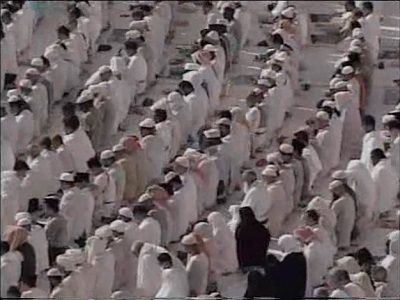
#5 - Saudi Time Bomb?
Season 2001 - Episode 17 - Aired 11/15/2001
President Bush says that if the nations of the world are not with us in the war on terrorism then theyre with the terrorists. But what about the United States' supposed ally Saudi Arabia? After September 11th many Saudi citizens reportedly applauded native son Osama bin Laden as a hero. Then the monarchy hesitated to renounce the Taliban and they are still reluctant to allow U.S. warplanes to fly from their bases. Why have Saudi and other Gulf charities sent money to support Islamic fundamentalist schools that are encouraging jihad? And are the Saudis dragging their feet when it comes to assisting U.S. law enforcement agencies that are tracking down terrorists? Whose side are the Saudis on? FRONTLINE and The New York Times explore the fragile alliance with this ultra conservative fundamentalist kingdom upon which the U.S. depends for fifteen percent of the countrys oil needs.
#6 - Gunning for Saddam
Season 2001 - Episode 16 - Aired 11/8/2001
As Americans are confronted by acts of bioterrorism, powerful forces in the nations capitol believe Iraqi President Saddam Hussein is to blame, for this and many other terrorist acts during the last decade. Many are lobbying to mobilize a military operation to oust Hussein when the next phase of the war on terrorism kicks in. Proponents of the plan, including former Clinton administration CIA director James Woolsey, contend Saddam Hussein was involved in the first World Trade Center bombing, the attempted assassination of President George H.W. Bush in 1993, and the ongoing state sponsorship of terrorist activities. Foes of this plan argue that attacking Saddam will destabilize other nations in the region, most prominently Saudi Arabia, and no doubt destroy the carefully crafted coalition presently hunting for Osama bin Laden in Afghanistan. FRONTLINE investigates Americas other enemy, Saddam Hussein.
#7 - Trail of a Terrorist
Season 2001 - Episode 15 - Aired 10/25/2001
On December 14, 1999, Ahmed Ressam was detained at the U.S./Canadian border when an alert customs agent became suspicious of Ressam's hesitant answers to her questions. When the trunk of his car was opened, agents discovered a powerful bomb and a plot for a millennium attack on America. Ressam said nothing at his trial but, facing 130 years in prison, decided to testify against an accomplice. His chilling testimony reveals his motives, his methods, and his connection to an Algerian terrorist group that had already carried out bombings in Europe. Ressam described his training at the Osama bin Laden camps in Afghanistan, where he became skilled in urban warfare, sabotage, and covert operations. With access to Ressams testimony, police files, and officials in the U.S., Canada, and France, correspondent Terence McKenna follows the trail of a terrorist.
#8 - Dangerous Straits
Season 2001 - Episode 14 - Aired 10/18/2001
Since the terrible events of Sept 11th, the United States has worked hard to put together a worldwide coalition against international terrorism. Where will China come down? FRONTLINE and The New York Times explore the tensions between the U.S. and China and the troubles the relationship presents for President Bush, who plans a visit to China in October. The dramatic U.S. spy plane incident off the coast of China in early 2001 reminded us of the dangerous suspicion that exists between the world's most powerful country and its most populous one. China has been supportive of some Islamic states that the U.S. counts as its enemies, and there is also the simmering question of Taiwan. American support for Taiwan means that if it declares independence, the U.S. could be drawn into an international dispute that might lead to war. The Straits of Taiwan have been described by one China expert as "one of the most dangerous places in the world."
#9 - Target America
Season 2001 - Episode 12 - Aired 10/4/2001
Last month, the nation's top leaders gathered to decide the U.S response to the September 11 terrorist attack. Some of the same individuals were in Washington, DC, twenty-two years ago when the United States suffered its first humiliation at the hands of Islamic militants. U.S. embassy employees were taken hostage and held captive before the world. Over the decades, incident followed incident - the bombing of the U.S. Marine barracks in Beirut, the killing of American soldiers in a Berlin nightclub, the downing of Pan Am 103, and the first attack on the World Trade Center. In "Target America," FRONTLINE uncovers a long-standing division within the nation's security apparatus about how to deal with an enemy that has been targeting America and Americans for decades.
#10 - Blackout
Season 2001 - Episode 10 - Aired 6/5/2001
Power shortages. Rolling blackouts. Skyrocketing utility bills. California's power disaster has made "energy" a national front-burner issue. The state's power crunch has affected everyone from homeowners and small businesses to the big-business consumers of electricity who originally pushed for deregulation. Now, the state's largest utility, PG& E, has filed for bankruptcy. But is California's energy crisis the result of flawed deregulation and the weather-or, as some charge, market manipulation by a new breed of power entrepreneurs? Or a bit of both? And could other states face similar energy shortages?
#11 - Medicating Kids
Season 2001 - Episode 8 - Aired 4/10/2001
Today, millions of American children are being prescribed powerful behavior modifying drugs such as Ritalin, Prozac, Adderall. But are these medications really necessary-and safe-for young children or merely a harried nation's quick fix for annoying, yet age-appropriate, behavior? FRONTLINE investigates the rapidly growing use of psychoactive drugs by children and the challenges of parenting and schooling in a world of high stress and increasing family disintegration. Through an intimate portrait of several families in an American suburb, the film explores how medication has increasingly become an integral part of caring for our kids. The documentary also examines the role of doctors, educators, pharmaceutical makers, and insurance companies in advancing this trend.
#12 - Organ Farm (1)
Season 2001 - Episode 6 - Aired 3/27/2001
Imagine a world where every patient who needed an organ transplant could receive one right away. Such a future is promised by xenotransplantation, the experimental process of transplanting genetically modified pig cells and organs into humans. But while a scientific breakthrough in cross-species transplants could offer hope to millions of desperately ill patients, such procedures could introduce new infectious agents into the human population, posing a public health risk to millions. Do the benefits of xenotransplantation outweigh the still-unknown dangers? FRONTLINE presents a rare inside look at the multi-billion dollar xenotransplantation industry, including a secret transgenic pig organ farm somewhere in North America. FRONTLINE presents extraordinary cutting-edge footage of the organs being developed and an unprecedented glimpse into a bio-secure, air-locked barrier world where science fiction may soon become science fact.
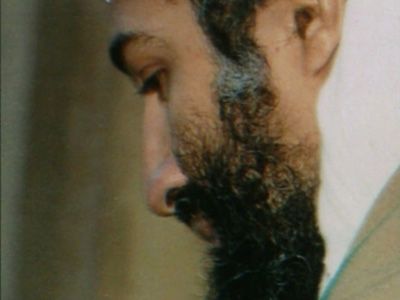
#13 - Looking for Answers
Season 2001 - Episode 13 - Aired 10/9/2001
The attack on the World Trade Center and the Pentagon was not only the most devastating terrorist attack in history, it was also the biggest failure of U.S. intelligence since Pearl Harbor. FRONTLINE correspondent Lowell Bergman and The New York Times investigate why the CIA and FBI failed to uncover the hijackers dramatic plot to strike at the heart of the U.S. government and its economy. The film also examines the U.S. failure to understand fully the hatred for America among Muslim fundamentalists, and its roots in the U.S. government's support for Israel and for authoritarian regimes in the oil-rich Middle East. A FRONTLINE co-production with The New York Times, this special episode is anchored by Bill Moyers.
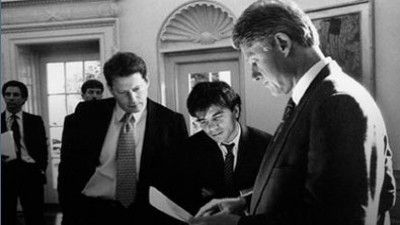
#14 - The Clinton Years
Season 2001 - Episode 1 - Aired 1/16/2001
He was a masterful campaigner - a skilled politician whose command of the issues and ability to connect with an audience impressed seasoned politicos and voters alike. Yet a rocky transition and a succession of scandals and mistakes - both personal and political - very nearly derailed the presidency of William Jefferson Clinton. As a new president takes the helm of the ship of state, FRONTLINE and ABC's Nightline join forces to present "The Clinton Years." A weeklong series of special Nightline reports culminates in this two-hour FRONTLINE documentary that follows Bill Clinton from the governor's mansion in Little Rock through a hard-fought campaign and his eight years in the White House. Through interviews with George Stephanopolous, Dee Dee Myers, Madeleine Albright, and other key administration officials, this seminal documentary hosted by Nightline's Ted Koppel offers the first inside look at the Clinton presidency.
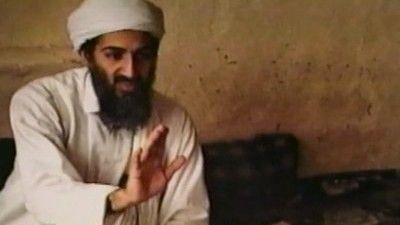
#15 - Hunting Bin Laden
Season 2001 - Episode 11 - Aired 9/13/2001
The United States has determined that Osama bin Laden is the orchestrator of the 1998 bombings of two U.S. embassies in East Africa, the October 2000 attack on the USS Cole in the Yemeni port of Aden, and finally, the September 11, 2001 terrorist attacks on the Pentagon and World Trade Center which killed over 3000 people. In FRONTLINE's "Hunting bin Laden," a Pulitzer Prize-nominated team of New York Times reporters and FRONTLINE correspondent Lowell Bergman investigates the man who has declared holy war on the U.S. -- a wealthy Saudi Arabian exile believed to be hiding in the mountains of Afghanistan with a $5 million bounty on his head.
#16 - Hackers
Season 2001 - Episode 4 - Aired 2/13/2001
Designed to facilitate the free exchange of ideas, the Internet has become home to confidential-even classified-information from virtually every nation in the world. Financial information, national infrastructure, even state secrets can be accessed via the complex computer network that is the World Wide Web. But how safe is that information if computer-literate teenagers can break into top-security computer systems, infect them with viruses, or steal sensitive-even dangerous-documents? FRONTLINE investigates the role of hackers and reveals how their exploits highlight the profound insecurities of the Internet and the software that drives it. Through interviews with teenagers, information warriors, security experts, and law enforcement officials, FRONTLINE illuminates a virtual world where many of our most sacred beliefs-including the very notion of bordered nations-are called into question.
#17 - Saving Elian
Season 2001 - Episode 3 - Aired 2/6/2001
On November 25, 1999, a five-year-old Cuban boy was plucked from the shark infested waters off Florida, and what began as a Thanksgiving story soon erupted into a political and social firestorm that transfixed the nation and rocked Miami's Cuban-American community to its core. FRONTLINE examines the passion and the purpose behind the battle over Elin Gonzalez and its effect on both the Miami community and the Cuban-American cause. With footage from Miami and Cuba, and interviews with participants and observers on both sides of the controversy, the documentary explores how one little boy became a symbol of a forty-year struggle for the future of a nation.
#18 - Juvenile Justice
Season 2001 - Episode 2 - Aired 1/30/2001
Should teenagers who commit serious crimes be tried as juveniles or adults? What happens to young offenders who reach the 'end of the line' in the juvenile court system - and how do you rehabilitate these young people to prevent future criminal behavior? FRONTLINE explores these questions as it follows four juvenile offenders - one white, two Hispanic, and one African American - through the Santa Clara, California, juvenile courts, observing how the criminal justice system treats their cases and determines their fates.